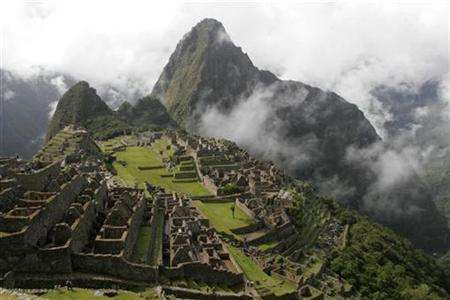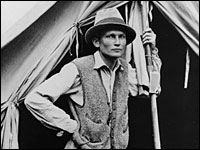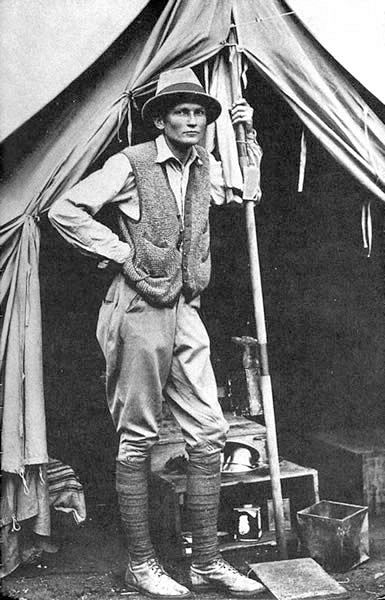Peru-Yale Machu Picchu Controversy Part 7
Yale and the Machu Picchu Artifacts
March 3, 2008
Letter to NYT
To the Editor:
Re “The Lost Treasure of Machu Picchu,” by Eliane Karp-Toledo (Op-Ed, Feb. 23):
Peru and Yale share the premise that Machu Picchu belongs to humanity as a cultural patrimony of the world declared by Unesco. Yale recognizes the importance of Machu Picchu to Peruvian identity and history and has always sought an amicable resolution that recognizes a shared interest in stewardship and scholarship.
The memorandum of understanding between the government of Peru under the leadership of President Alan García and Yale University provides that Peru will have sole title to the Machu Picchu materials, including research materials at Yale.
The memorandum also provides for the creation of an international traveling exhibit at Yale’s expense and the return to Peru of almost all museum-quality objects currently held at Yale.
The memorandum further provides for Yale’s participation in advising a Peruvian museum and research center and scholarly exchanges. All of this will be in a collaborative framework.
Helaine Klasky
Associate Vice President, Yale University
New Haven
Peru-Yale Machu Picchu Controversy Part 6

The Lost Treasure of Machu Picchu
By ELIANE KARP-TOLEDO
February 23, 2008
Op-Ed Contributor
NYT
Stanford, Calif.
Sure, it seemed like a great idea when, last September, President Alan García of Peru reached a preliminary agreement with Yale about the disposition of more than 350 artifacts taken from Machu Picchu. Everyone hoped the settlement might be a break for cultural understanding in the cloudy skies of international cooperation. News reports suggested that Yale would return more than 350 museum-quality artifacts, plus several thousand fragments thought to be of interest mainly to researchers — all of which were taken from the mountaintop Inca archaeological complex nearly a century ago — and that legal title to all the artifacts, even those to be left at Yale for research, would be held by Peru.
But having finally obtained a copy of the agreement, I can see that Yale continues to deny Peru the right to its cultural patrimony, something Peru has demanded since 1920.
When, in 1912 and 1914-15, the explorer Hiram Bingham III excavated the treasures from Machu Picchu — ceramic vessels, silver statues, jewelry and human bones — and took them from Peru, it was supposed to be a loan for 12 months (a period that was later extended a half-year). The National Geographic Society, which co-sponsored Bingham’s explorations, has acknowledged that the artifacts were taken on loan and is committed to seeing them returned to Peru…
(more…)
Peru-Yale Machu Picchu Controversy Part 5
The Possessed
By ARTHUR LUBOW
NYT Magazine
June 24, 2007
The stones at Machu Picchu seem almost alive. They may be alive, if you credit the religious beliefs of the ruler Pachacuti Yupanqui, whose subjects in the early 15th century constructed the granite Inca complex, high above a curling river and nestled among jagged green peaks. To honor the spirits that take form as mountains, the Inca stoneworkers carved rock outcrops to replicate their shapes. Doorways and windows of sublimely precise masonry frame exquisite views. But this extraordinary marriage of setting and architecture only partly explains the fame of Machu Picchu today. Just as important is the romantic history, both of the people who built it in this remote place and of the explorer who brought it to the attention of the world. The Inca succumbed to Spanish conquest in the 16th century; and the explorer Hiram Bingham III, whose long life lasted almost as many years as the Inca empire, died in 1956. Like the stones of Machu Picchu, however, the voices of the Inca ruler and the American explorer continue to resonate…
(more…)
Peru-Yale Machu Picchu Controversy Part 4
Elections could avert Peru’s lawsuit
Source: Yale Daily News by Andrew Mangino, Staff Reporter
April 12, 2006
As this week’s heated Peruvian presidential election enters a runoff, the
government of Peru has not yet filed a lawsuit against Yale for the return of
precious Machu Picchu artifacts excavated in the 1910s, casting doubt on the
future of the dispute.
Nearly a century has passed since Yale historian Hiram Bingham III’s
discovery of the artifacts that redefined universal understanding of the Incan
culture, but archeological experts say the historical record is murky, citing
contracts that seem to confirm Peru’s right to ask for Bingham’s findings to be
returned on the one hand and Yale’s longstanding custodianship of the artifacts
on the other hand. Whether or not Peru will follow through with its promise
to sue Yale may hinge on the incoming government’s attitudes toward national
identity, regional experts said, though there are still a number of complicated
legal, ethical and historical questions that must still be answered by both
parties…
(more…)
Peru-Yale Machu Picchu Controversy Part 3

Peru dispute has long, murky past: Fate of Incan artifacts found by Hiram Bingham in 1911 may be decided in court
Source: Yale Daily News by Andrew Mangino, Staff Reporter
April 14, 2006
Hike a mere half-mile up Hillhouse Avenue, take a right on Sachem Street, and
a mysterious world 3,500 miles away suddenly emerges: the ancient Inca
society at Machu Picchu, Peru.
Unassumingly sandwiched between plain classroom buildings, the Yale
Peabody Museum, home to the exhibit, features an epic photo of rolling canyons and
ancient clay homes. An Inca Aryballos for holding corn beer sits in a glass
case. Three Sapa Incans are dressed in colorful robes. An eerie whisperer utters
over the PA system in Quechua, the native Incan language.
On the dark wall, a photograph of Yale historian Hiram Bingham III, who
excavated the artifacts and many more from the region in 1911, is pictured as
part of the original expedition that, the poster reads, included topographers,
medical doctors, a geologist, an osteologist, an archeological engineer and
even several Yale students.
But one central part of the story is conveniently missing from the
exhibit: a 95-year-old tale of discovery and deceit, world-class research and
nationalist movements, politics and pride, ambiguity and conviction. It is the
illustrious tale of the ever-changing relationship between Yale and Peru, a
partnership that hit its lowest point yet last month when the Peruvian government
reiterated its demand for the artifacts to be returned and declared its intention
to sue the University in the coming months…
(more…)
Peru-Yale Machu Picchu Controversy Part 2
Peru Seeks Return of Machu Picchu Artifacts [8min]
Source: NPR “All Things Considered” Diane Orson reports.
March 30, 2006
In 1911, Yale history professor Hiram Bingham III and a small group of guides
stumbled upon a lost city of the Incas: the fortress of Machu Picchu, high in
Peru’s Andes Mountains. For centuries, the treasures found there had been
lost to the Peruvian people. Once found, they disappeared again, going off to
Yale’s Peabody Museum. Now Peru wants the Incan relics returned. During three
trips to Machu Picchu, Bingham excavated hundreds of objects, including silver
statues, jewelry, musical instruments and human bones. The relics are part of a
multimedia exhibition at Yale’s Peabody Museum in New Haven, Conn. Two of
Bingham’s trips were co-funded by Yale University and the National Geographic
Society. When Yale launched a major touring exhibition featuring the artifacts
three years ago, the Peruvian government started negotiations to get them back.
Yale offered to divide the items up and help Peru install its share in a museum
near the site. Peruvian officials would not agree to any joint projects until
Yale acknowledged that all of the objects belong to the Peruvian people. Yale
refused. Peruvian officials say the dispute is between their government and
Yale University, and does not involve the U.S. government. They have not
announced when Peru will file suit.
Listen to the Program:
Peru-Yale Machu Picchu Controversy Part 1
 In this and subsquent posts I’ll keep readers updated on the current controversy about the thousands of artifacts taken from the ancient Inca city of Machu Picchu in Peru nearly a century ago by the Yale historian, Hiram Bingham. Bingham “discovered” Machu Picchu in 1911 and, backed by the National Geographic Society, he returned with large expeditions in 1912 and 1914-1915. Each time, Bingham and his team shipped crates filled with archaeological discoveries to Yale from the now world-famous site. Yale is currently embroiled in an escalating dispute with Peru over the return of Bingham’s treasures, which are on display as part of the Yale’s permanent museum collection. Recently, a Peruvian team visiting Yale discovered that, far from the 5,000+ artifacts it was thought Bingham had acquired, Yale had more than 40,000 Machu Picchu artifacts–many of them still in unopened wooden crates that Bingham had shipped back. Peru is hoping to gain their return before the 100th anniversary of Bingham’s discovery of Machu Picchu in 2011. –Kim MacQuarrie
In this and subsquent posts I’ll keep readers updated on the current controversy about the thousands of artifacts taken from the ancient Inca city of Machu Picchu in Peru nearly a century ago by the Yale historian, Hiram Bingham. Bingham “discovered” Machu Picchu in 1911 and, backed by the National Geographic Society, he returned with large expeditions in 1912 and 1914-1915. Each time, Bingham and his team shipped crates filled with archaeological discoveries to Yale from the now world-famous site. Yale is currently embroiled in an escalating dispute with Peru over the return of Bingham’s treasures, which are on display as part of the Yale’s permanent museum collection. Recently, a Peruvian team visiting Yale discovered that, far from the 5,000+ artifacts it was thought Bingham had acquired, Yale had more than 40,000 Machu Picchu artifacts–many of them still in unopened wooden crates that Bingham had shipped back. Peru is hoping to gain their return before the 100th anniversary of Bingham’s discovery of Machu Picchu in 2011. –Kim MacQuarrie
(click below to read Part 1)
(more…)



